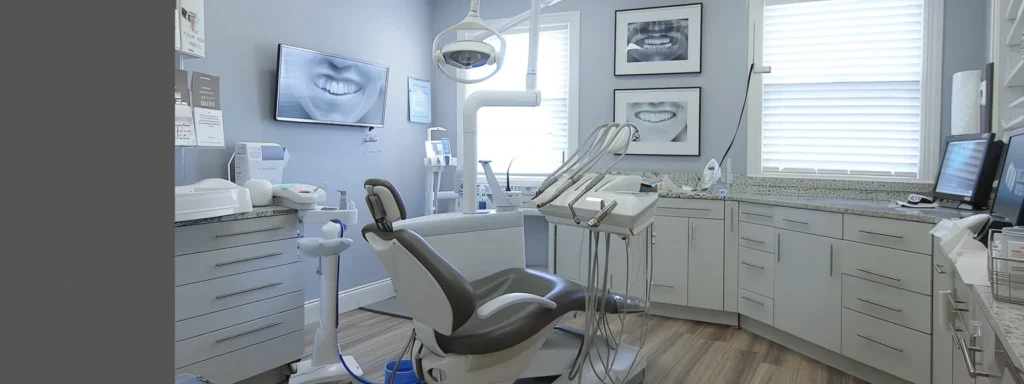Gum disease is one of the most common yet preventable oral health issues. In its early stages, it can appear subtle, slight bleeding while brushing, mild swelling, or chronic bad breath. This article explains how to recognize the earliest warning signs, the steps to protect your gums, and when to see a dental professional for help. By catching gum disease early, you can prevent lasting damage and keep your smile healthy for years to come.
Dr. Behrooz Khademazad has served the Grand Prairie community for over three decades, providing compassionate and comprehensive dental care. As a trusted general dentist with advanced training across multiple disciplines, Dr. Khademazad combines science-based methods with personalized treatment plans. His long-standing reputation reflects both expertise and integrity, helping patients from neighborhoods like Westchester, Dalworth Park, and Trailwood maintain lasting oral health.

Subtle Symptoms You Should Never Overlook
Most people don’t realize they have gum disease until it’s progressed. In the early stages, small changes in your gums can signal inflammation or infection. Bleeding during brushing or flossing isn’t normal. It’s your gums asking for attention. Swelling, redness, or tenderness are also common early signs of gum irritation.
Bad breath that doesn’t go away with brushing or mouthwash can indicate bacteria buildup under the gumline. Receding gums or teeth that appear longer are other warning signs that your gums may be pulling away from your teeth. These symptoms can worsen without treatment, leading to tooth and bone loss.
Common Risk Factors for Gum Disease
Certain factors increase your likelihood of developing gum disease. If you smoke, have diabetes, or struggle with dry mouth, your gums may be more vulnerable to infection. Genetics can also play a role, so if your family members have a history of gum disease, regular dental checkups are especially important.
You may also face higher risk if you live a busy lifestyle and skip professional cleanings. Neglecting routine visits allows plaque to harden into tartar, which can only be removed by a dental hygienist. Regular care at our office near Lake Parks and Nottingham Estates helps prevent this buildup and protects your gums from further damage.
How Routine Dental Visits Prevent Gum Problems
Professional cleanings remove plaque and tartar in areas brushing can’t reach. During each visit, Dr. Khademazad checks for inflammation, gum pocket depth, and bone support. These measurements help identify early-stage gum disease before it leads to serious damage.
Consistent care also allows our team to provide preventive treatments, such as scaling and root planing, when needed. These deep cleanings smooth tooth roots to prevent bacteria from reattaching. In neighborhoods like Lynn Creek and Forum Estates, many patients have seen how timely care can reverse early gum disease and restore healthy gums.
Warning Signs That Require Immediate Attention
Some symptoms mean you should see a dentist right away. These include:
- Gums that bleed easily when brushing or flossing
- Persistent bad breath or a bad taste in your mouth
- Loose or shifting teeth
- Changes in your bite or how dentures fit
Ignoring these warning signs can allow gum infection to spread deeper, affecting the bone that supports your teeth. Prompt care at Grand Prairie Family Dental can stop progression and prevent tooth loss. Early treatment is often simpler, less invasive, and more effective.

Gum Disease Treatment Options Available in Grand Prairie
Once gum disease develops, treatment depends on its severity. For early stages (gingivitis), a professional cleaning and improved home care may be enough. More advanced cases (periodontitis) often require scaling and root planing to remove bacteria from beneath the gums.
In severe cases, Dr. Khademazad may recommend laser therapy or surgical procedures to restore gum health. Our practice also emphasizes long-term maintenance with routine visits every three to four months to keep gum disease from returning.
| Stage | Symptoms | Common Treatments |
| Gingivitis | Red, swollen, bleeding gums | Professional cleaning, better home care |
| Mild Periodontitis | Early bone loss, gum pockets 4-5mm | Scaling and root planing, antibiotics |
| Advanced Periodontitis | Deep pockets, loose teeth | Laser or surgical therapy, maintenance cleanings |
How to Protect Your Gums Between Visits
Preventing gum disease starts at home. Daily habits make a huge difference in gum health. Here are key steps that protect your smile:
- Brush twice a day using a soft-bristled toothbrush
- Floss daily to remove plaque between teeth
- Rinse with an antibacterial mouthwash
- Eat a balanced diet and limit sugary snacks
- Avoid tobacco use
Maintaining these habits, along with regular professional cleanings, helps keep your gums firm, pink, and healthy. Our team also teaches proper brushing and flossing techniques to make at-home care more effective.

The Connection Between Gum Health and Overall Wellness
Gum disease doesn’t just affect your mouth. Studies link it to heart disease, diabetes, and other systemic conditions. When bacteria enter the bloodstream through inflamed gums, they can contribute to inflammation in other parts of the body.
Taking care of your gums helps protect your overall health, not just your smile. Many of our patients from Sheffield and Brookfield North are surprised to learn how much oral health impacts the rest of their body. Prioritizing gum care can improve long-term wellness and confidence.
When to Schedule a Gum Checkup
If you haven’t had a dental cleaning in over six months, now is the perfect time. Regular visits allow early detection and prevent small issues from turning into major concerns. Whether you live near Cedar Ridge Estates or Mira Lagos, Dr. Khademazad and his team make preventive care simple and comfortable.
Ignoring early signs of gum disease can lead to costly and painful complications. With timely intervention, you can keep your natural teeth for life and enjoy a healthier smile.
Taking the Next Step
Healthy gums are the foundation of every confident smile. If you’ve noticed any signs of gum irritation, don’t wait until pain or tooth movement forces you to act. Early intervention is always easier and more affordable than advanced treatment. A simple cleaning and checkup could be all you need to prevent future issues.
At Grand Prairie Family Dental, we see our role as your trusted guide toward better oral health. Dr. Behrooz Khademazad and his team take the time to listen, evaluate, and create a personalized plan that fits your needs and comfort level. Take the first step today and schedule your visit by calling 972-988-0900 or visit Grand Prairie Family Dental to begin your journey to a stronger, healthier smile.
Schedule your consultation today with Dr. Behrooz Khademazad and discover what personalized dental care in Grand Prairie, TX truly feels like.
Schedule Your Consultation Today!
Grand Prairie Family Dental
2475 W Pioneer Pkwy Grand Prairie, Texas, 75051
Google Reviews: See More Reviews From Grand Prairie Family Dental
View information about local places in our community.
Driving Directions to Our Practice
Frequently Asked Questions
What causes gum disease to develop?
Gum disease begins when plaque, a sticky film of bacteria, builds up on teeth and hardens into tartar. Without regular brushing, flossing, and professional cleanings, this bacteria irritates the gums, leading to inflammation and infection. (Source: American Dental Association, ada.org ; Centers for Disease Control and Prevention, cdc.gov )
Can early gum disease be reversed?
Yes. Gingivitis, the earliest stage of gum disease, can often be reversed with proper oral hygiene and professional cleanings. Once it progresses to periodontitis, damage may be permanent but can still be managed with treatment. (Source: Mayo Clinic, mayoclinic.org ; National Institute of Dental and Craniofacial Research, nidcr.nih.gov )
How can I tell if my gums are healthy?
Healthy gums should be pink, firm, and not bleed when brushing or flossing. Persistent redness, swelling, or bleeding may indicate early gum disease and should be evaluated by a dentist. (Source: American Academy of Periodontology, perio.org ; Cleveland Clinic, my.clevelandclinic.org )
Does gum disease affect my overall health?
Yes. Research shows a link between gum disease and systemic conditions like heart disease, diabetes, and stroke. Treating gum inflammation can improve both oral and general health. (Source: Harvard Health, health.harvard.edu ; CDC, cdc.gov )






